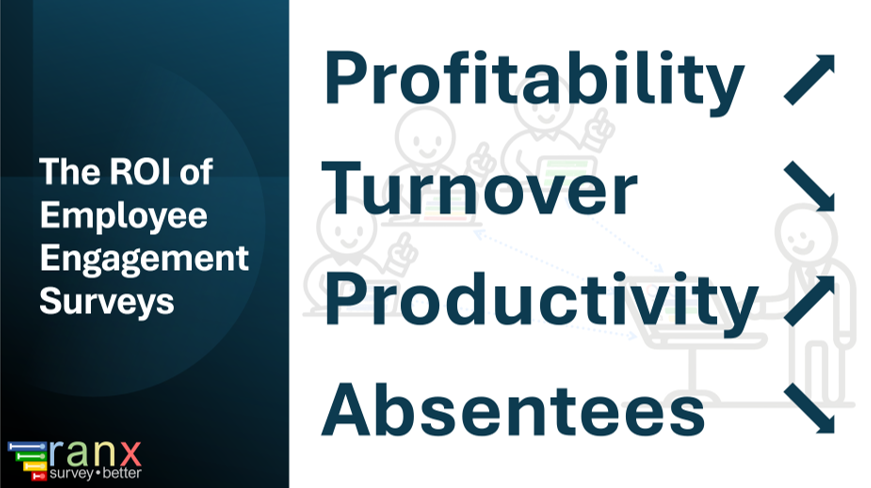Why you should care about Employee Engagement surveys!
The ROI of Employee Engagement Surveys: A Comprehensive Overview
Employee engagement surveys are more than just a tool for gauging employee satisfaction—they are a strategic investment that can yield significant returns for organizations. Let’s explore the ROI of these surveys, supported by benchmarks, data, and visual aids.
Why Employee Engagement Matters
Engaged employees are more productive, committed, and aligned with the company’s goals. According to Gallup, companies with high employee engagement experience:
- 21% higher profitability
- 17% higher productivity
- 41% lower absenteeism
- 24%-50% lower turnover rates
Measuring the ROI of Employee Engagement
To quantify the ROI of employee engagement, consider the following key performance indicators (KPIs):
- Employee Productivity: Engaged employees are more productive. A 17% increase in productivity can be directly linked to higher engagement levels.
- Turnover Rates: Reducing turnover by 24%-50% saves costs associated with hiring and training new employees.
- Absenteeism: Lower absenteeism rates (41% reduction) mean fewer disruptions and higher overall efficiency.
- Employee Net Promoter Score: eNPS determines the likelihood of employees recommending their organization as a great place to work.
- Customer Satisfaction: Engaged employees provide better customer service, leading to a 10% improvement in customer ratings.
Conclusion
Investing in employee engagement surveys is not just about improving morale – it’s about driving tangible business outcomes. By understanding and leveraging the ROI of these surveys, organizations can create a more productive, satisfied, and loyal workforce.


